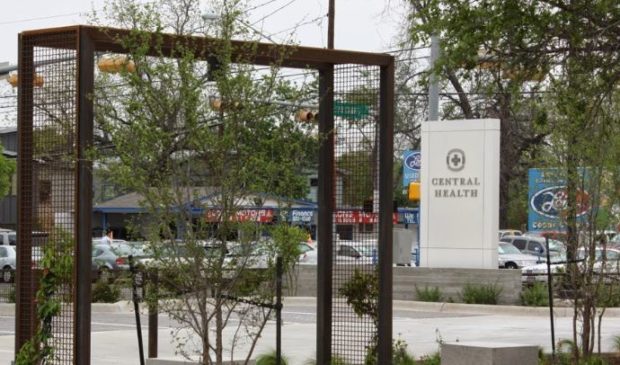Central Health evaluation targets care delivery, med school transparency
Tuesday, August 15, 2017 by
Chad Swiatecki To indulge in an extended health care metaphor, one could compare the extensive evaluation Central Health has commissioned to a very public checkup where anyone with any interest in the condition of the community health organization gets a chance to give a head-to-toe overview, and very loudly state their findings.
At a pair of public forums last week, Austin-area residents shared their feelings on a perceived lack of transparency, questionable use of taxpayer dollars and lack of easy access to health care services in portions of Central Health’s coverage area where they are most needed by distressed citizens. Those issues have dogged the health care agency recently, most especially since it became part of a multi-agency scheme to utilize a 2012 local bond issue, in concert with the creation of the University of Texas’ Dell Medical School, to provide comprehensive health care services for the area’s most needy.
The forums were one component of a larger study being conducted by Germane Solutions, a company based in Dayton, Ohio, that will evaluate Central Health on issues such as access to care, stewardship of public funds, organizational structure, governance and its existing partnerships. The firm will also conduct stakeholder interviews and a variety of data metrics to determine how Central Health performs compared to other public health authorities in Texas and across the country.
The company will present its findings and recommendations in January and may stay on to help the agency implement any needed changes.
Matt Boll, director of health access and public health for Germane Solutions, said the issues that Central Health is facing with the public are seen with some regularity for an institution of its size, with changes in perception possibly taking years to correct.
“In our experience, the common stress points tend to focus on getting information out to the community about services available and getting appropriate feedback from community members about how resources can be targeted to meet key community needs,” he said via email. “These issues often take time, but are resolved by creating strategic initiatives that demonstrate tangible action, while simultaneously providing ongoing education/awareness of the short-term and long-term plans of the public health organization.”
In addition to its role with the medical school and construction of a new teaching hospital that will provide health care to needy residents, Central Health is a key player in the city’s “downtown puzzle” because it will determine the fate of the redevelopment proposals for the former University Medical Center Brackenridge site on the eastern edge of downtown.
With new CEO Mike Geeslin ready to lead Central Health into a new phase of its mission, the time was right for a comprehensive analysis, said Jeff Knodel, Central Health’s vice president and chief financial officer.
“The board and Central Health leadership felt the need to hire independent expertise to evaluate our organization model and the efficacy of our work,” Knodel said. “This performance review is a way for the new leader to understand the strengths and areas of opportunities of Central Health and chart a vision for the future.”
No further community sessions are planned at this time because representatives with BB Imaging & Healthcare Consulting, the local firm that administered the forums, said there’s concern that the area’s vulnerable populations have been “over surveyed” about health care issues and more forums would produce little in the way of additional useful input.
While Central Health staff members stayed away from the forums so their presence wouldn’t impact community input, Knodel said reports from the events had similar feedback, especially regarding the need to improve services and access to care in eastern Travis County, in particular Del Valle and Colony Park, and for more clarity on Central Health’s role in the medical school’s operations.
The Austin Monitor’s work is made possible by donations from the community. Though our reporting covers donors from time to time, we are careful to keep business and editorial efforts separate while maintaining transparency. A complete list of donors is available here, and our code of ethics is explained here.
You're a community leader
And we’re honored you look to us for serious, in-depth news. You know a strong community needs local and dedicated watchdog reporting. We’re here for you and that won’t change. Now will you take the powerful next step and support our nonprofit news organization?









